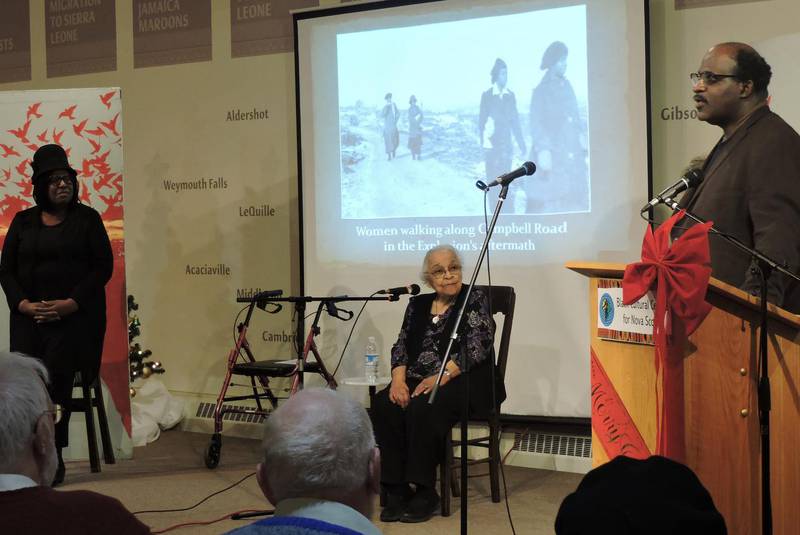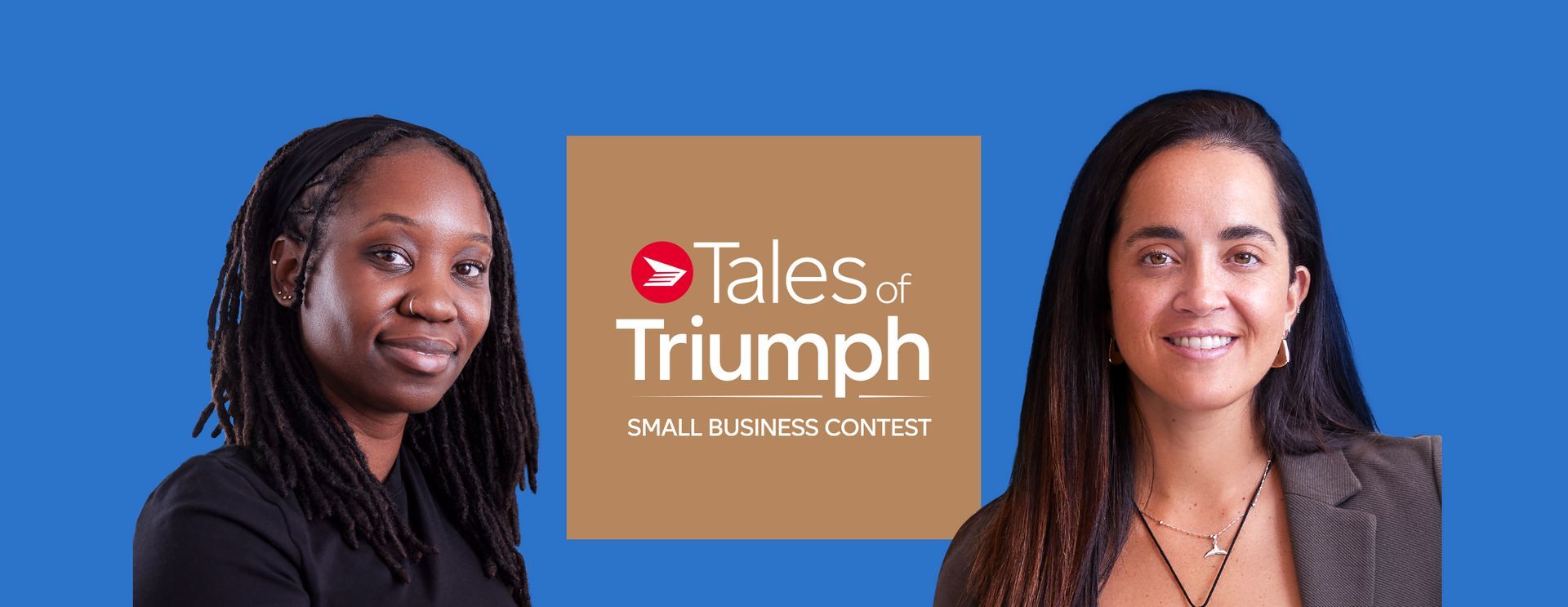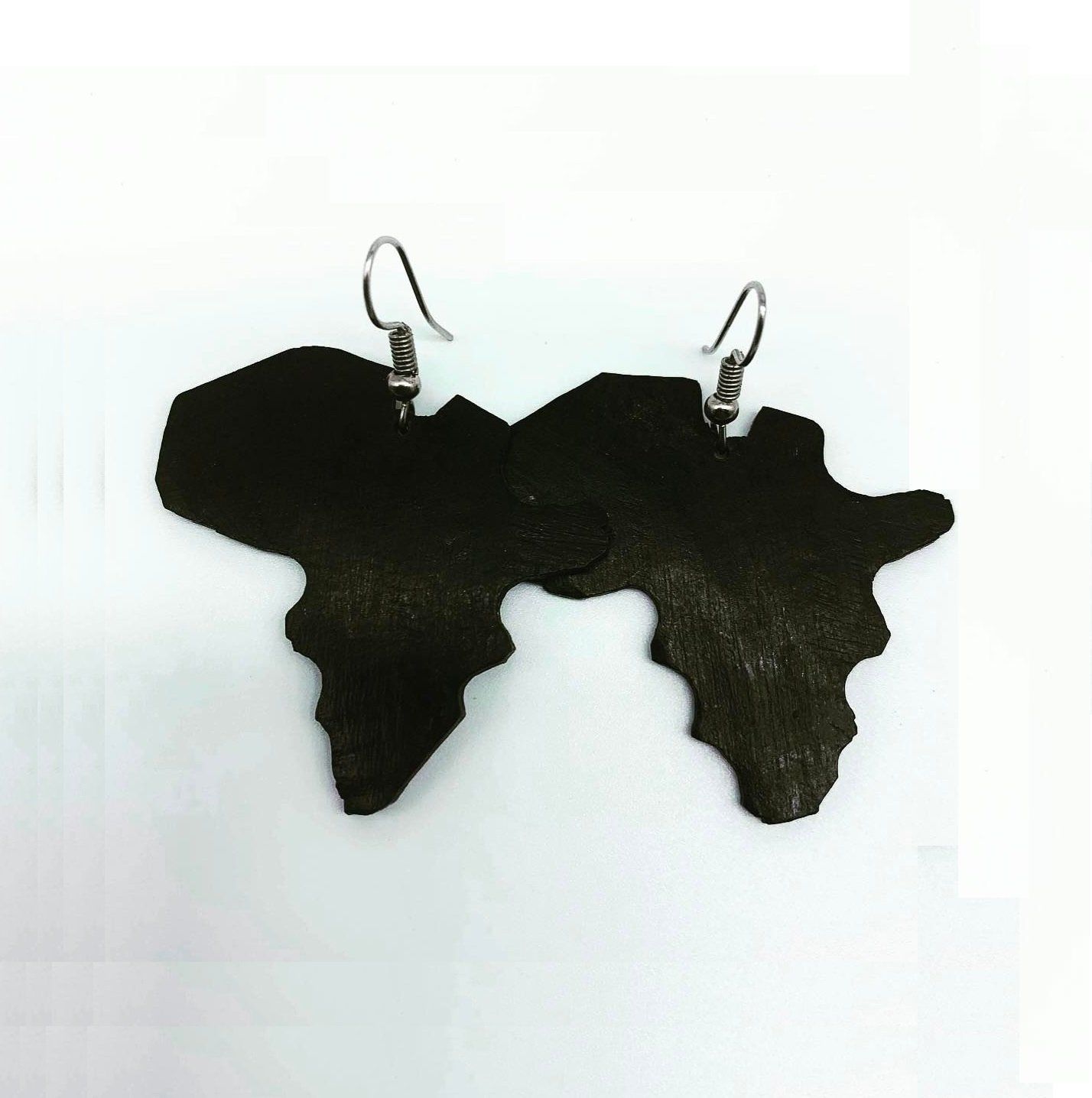Black Explosion adds fresh perspective to historic tragedy
After more than a century, the Halifax Explosion on Dec. 6, 1917 remains an event that looms large in the minds of Nova Scotians as a defining moment in our history. And in the course of his own years of research, Halifax writer David Woods has found there are still many stories to tell about the devastating cataclysm, specifically those from the region’s African-Nova Scotian communities.
Last week, Woods hosted a unique event at the Black Cultural Centre in Cherry Brook, combining history, drama and storytelling titled Black Explosion, connecting the narrative threads of the Halifax Explosion, the First World War and the civil rights movement. Based on the research he’s done for his upcoming play Extraordinary Acts, the evening featured story tellers Wanda Robson from North Sydney, Kentville’s Geraldine Browning and Halifax’s Wanda Lewis, painting a broader picture of the events of that fateful day, as well as uncovering some of the hateful truths about the systemic racism of the time that even an earth-shattering disaster couldn’t shake.
“It’s been a very interesting journey for me, exploring the Halifax Explosion,” Woods told the packed crowd Friday night, before discussing his research and his desire to spread the story of Dr. Clemente Courtnay Ligoure, who treated the wounded at his North Street clinic. Ligoure became a central figure in Extraordinary Acts, which Woods wrote in partnership with Voices Black Theatre and the Nova Scotia Home for Coloured Children Society.
“It feels like it was my destiny to write about this man,” said Woods. “He was from Trinidad, which is also where I happened to originate, before North Preston stole me away. The more I found out, the more I wanted to learn about this hero, as well as the African-Nova Scotian experience, which is consistently left out of the annual commemorations of the Halifax Explosion.”
The first half of the evening took the form of an illustrated lecture, with familiar images of the two ships that collided at the Narrows of Halifax Harbour, the heavily laden munitions ship Mont Blanc and the Belgian relief vessel Imo, the sight of Halifax’s north end levelled by the blast, and an often-reprinted photo of four women from Africville making their way along what is now Barrington Street past rubble and jagged timbers that used to be families’ homes.
But apart from that photo, Woods says the story of black Nova Scotians is rarely part of the historical record, and when he saw museum displays on the explosion, “there was very little mention of their experience, and what was there was misrepresented.”
Dr. Ligoure is a case in point, a man of many firsts who became the province’s first licensed black physician and publisher of the province’s first black newspaper, the Atlantic Advocate. But he did these things after he moved to Nova Scotia to answer his country’s call of duty and serve as medical officer for the No. 2 Construction Battalion — the first to include African-Canadian soldiers — but was denied the post because the army would not allow a black man to serve as an officer.
“You can imagine the shock of a man who had given up his career path to come here, who was willing to serve, and he was left out,” said Woods.
The explosion’s reach also included the Nova Scotia Home for Coloured Children, a much-needed institution that was destroyed in the disaster before it officially opened, and was ultimately established in Westphal in 1921. Woods also related the story of Jamaican soldiers forced to stay on an unheated ship waylaid by German U-boats, who were being treated for the resulting frostbite and gangrene at the time of the explosion.
In the second half, vivid pictures of that day and those that followed were painted by the storytellers gathered for the occasion, starting with 92-year-old Robson. She grew up with stories about the Halifax Explosion from her parents and siblings who lived in the Davis home on Gottingen Street, including her sisters, civil rights icon Viola Desmond, who was three years old at the time, and Emily Clyke, who passed away in June just before her 105th birthday.
Within seconds of the blast, their father James Davis ran to the kitchen where little Viola was in her high chair, covered by the window shade which protected her from flying glass.
“She had her hands over her head, and she said ‘Those bad boys are throwing stones at me,’” recalled Robson, before describing how her father then bundled up the kids and went down the street to check on their grandmother.
They found her in her kitchen, where the force of the blast had sent her flying up onto the top shelf of the cupboard.
“You have to laugh, she was a tiny woman, she must have weighed 90 pounds, and there she was sitting with her feet dangling down,” said Robson.
“She cried out, ‘Well, James what are you doing just standing there? Get me down from here! Those Germans are bombing us!’”
But for most African-Nova Scotians, the experience of the Halifax Explosion was far more grim, as Browning recounted how it claimed the life of her grandfather, Andrew Upshaw, from Windsor. He had been working on the furnace of a ship in Halifax Harbour, one of the few that would hire black crewmembers.
“So many people had family working in Halifax who were killed or injured. It affected the whole community, it was a very sad day for the people of Windsor,” said the Annapolis Valley educator and Order of Nova Scotia recipient.
Later, Browning’s grandmother remarried and ultimately had eight children from her first marriage and eight more in her second, plus many foster kids who came from the Home for Coloured Children.
“I guess she just loved children,” said Browning, who pointed out that the relief commission created after the explosion did little to help affected African-Nova Scotian families; a fact borne out by Woods’ discovery of documents outlining its official policy to offer black families less relief than white ones.
“Some people would get $1,000 for their troubles, and my grandmother didn’t get enough to feed her children,” Browning told the crowd. This added to the weight of Wood’s proof of the systemic racism of the time, and Lewis’s story of widowed Halifax businesswoman Rachel Brown, forced to live with her children in a $260 shack after the explosion with no relief money in sight.
As a founding member of the Black Business Initiative and the Black Cultural Society, Browning said these stories remain valuable lessons, even as they’re coming to light 100 years later, and serve as a reminder that we as society can strive to do better.
“We can’t go back, we can only change the present for the future.”
SOURCE: http://ow.ly/3pDo30nd80B











